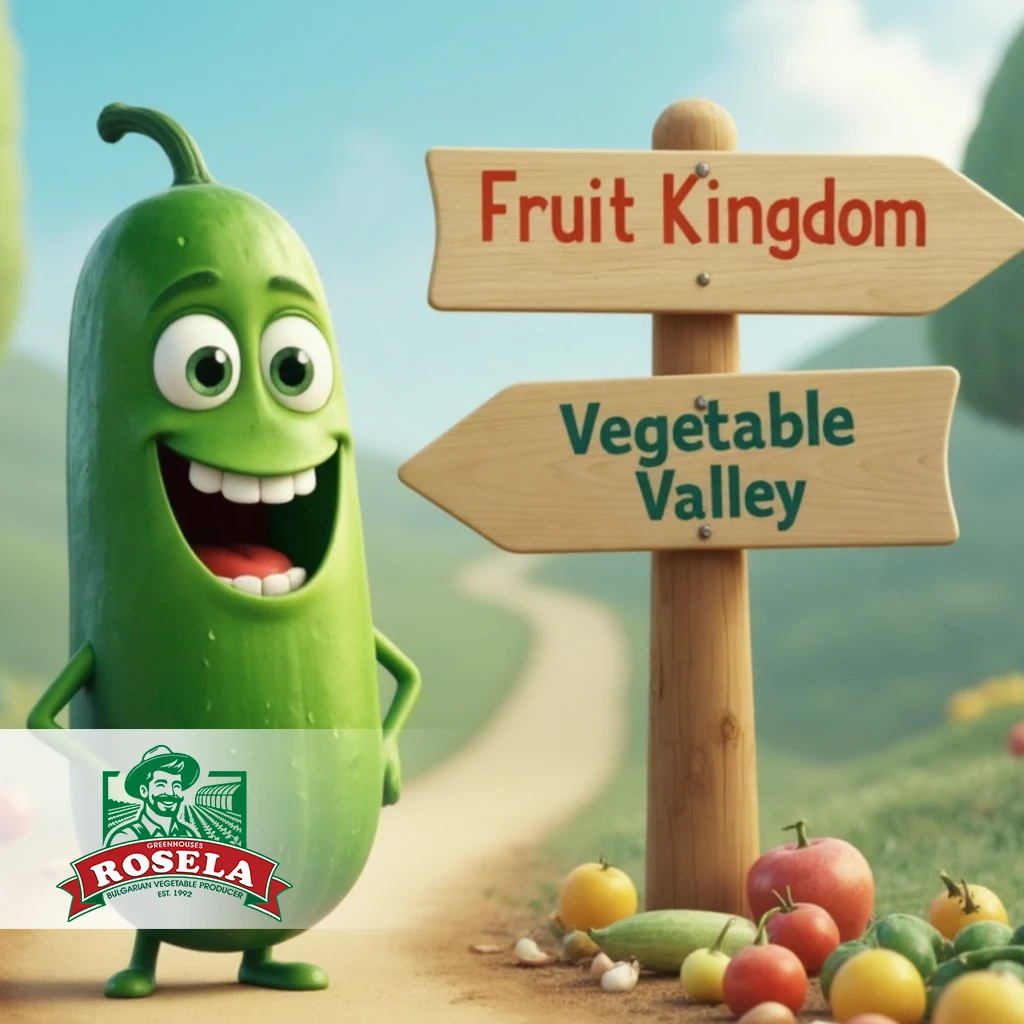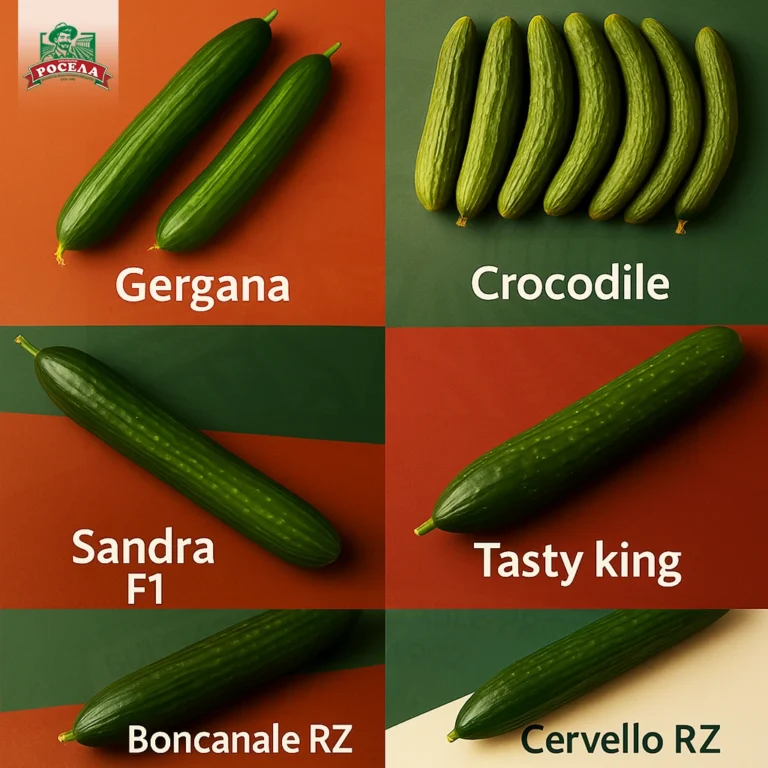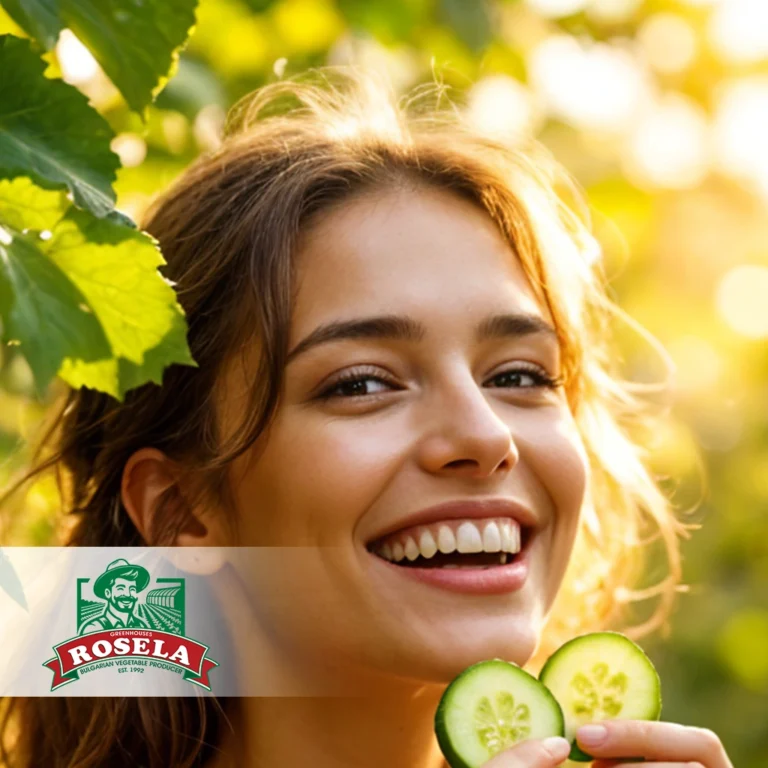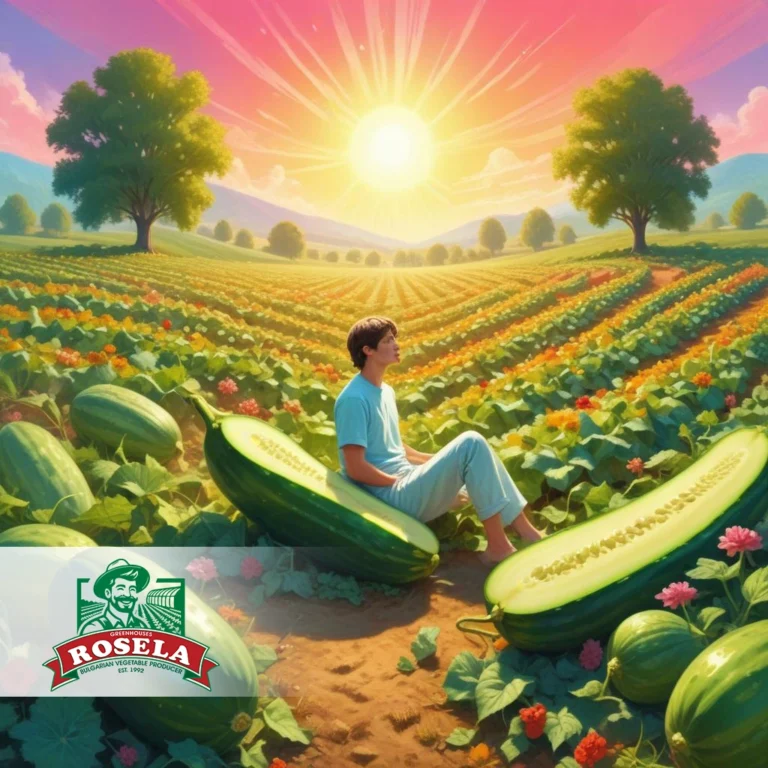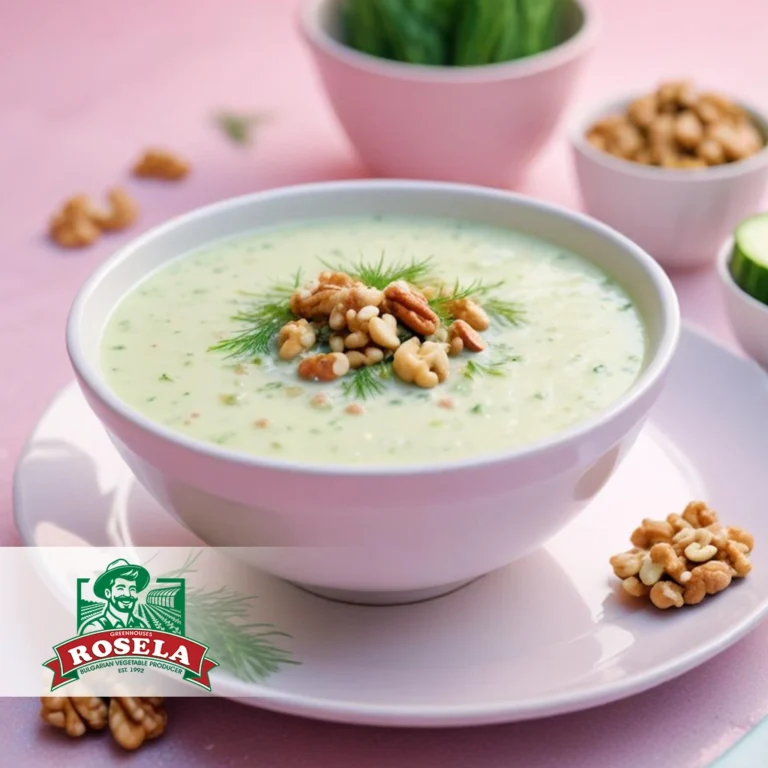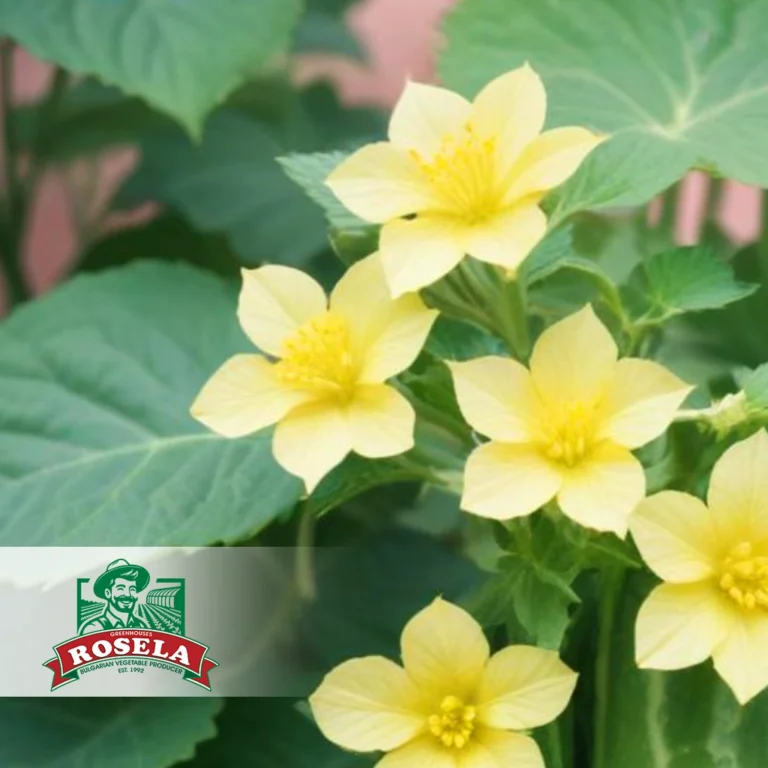Content:
Cucumber: Is It a Fruit or a Vegetable? Solving the Cucumber Debate:
First Bite: More Than Just a Salad Thing – Ever Wonder Whether it’s a Fruit or a Vegetable?
Have you ever taken a bite of a crisp cucumber and wondered what it is?
We use them in salads, sometimes pickling them to eat them, and occasionally they are in soups that we don’t expect.
Without a doubt, they are one of those items that are required in the kitchen. But here’s the thing that makes you go thinking: is cucumber a fruit or is it a vegetable?
This article answers all of it, we promise! In this article, we are going to try to find out once and for all whether a cucumber is a fruit or a vegetable.
Botanical Truth Bombshell: Cucumber is a Fruit – Let’s Look At What Is Considered a Fruit in Botany
Get ready for a bit of plant science fun: cucumbers, from a botanical point of view, are in fact fruits!
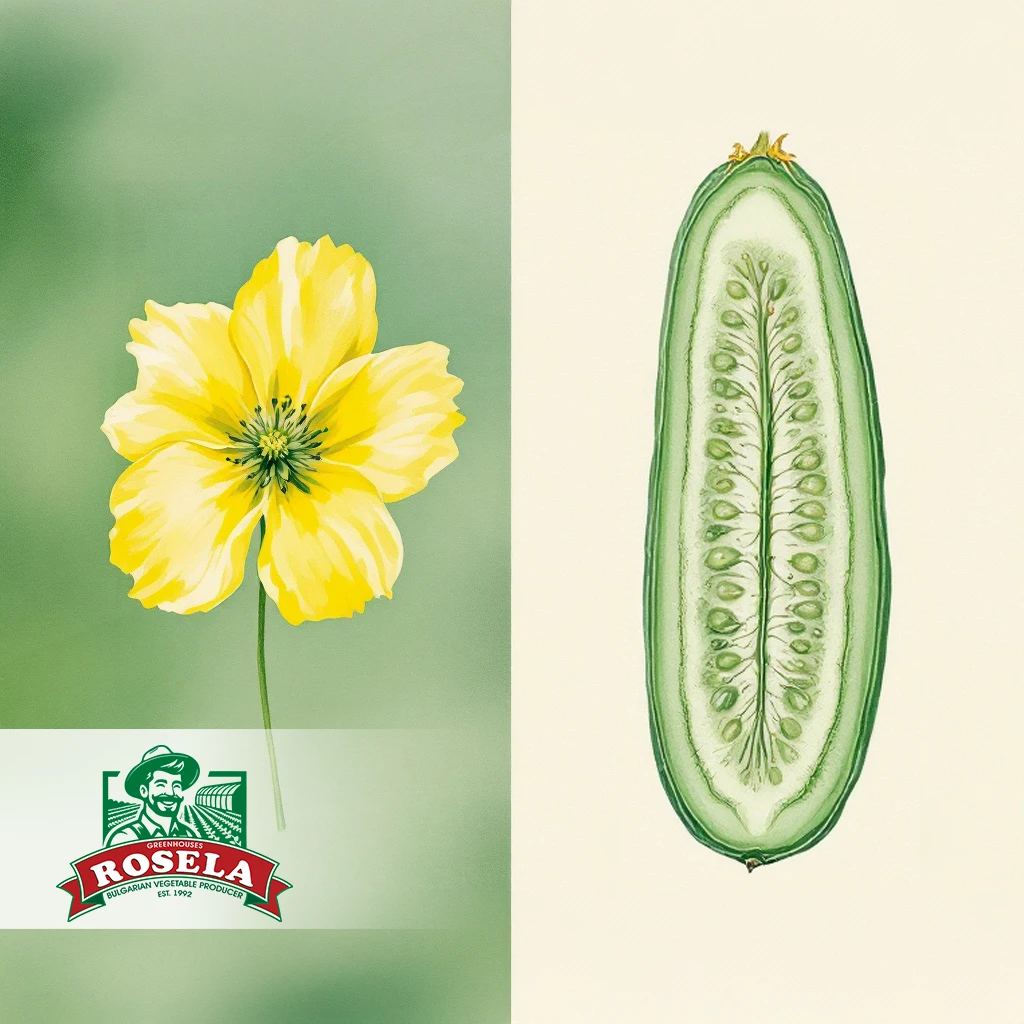
The botany experts, the botanists, are very clear on this. And why is that? Well, it’s all about the parts of the plant, see.
When you look at the scientific definition, fruits are the products of the flower of a plant and guess what? They hold seeds.
Have you ever sliced a cucumber? You have seen those seeds, right? Yep, those seeds are the key! That’s the scientific definition that makes it a fruit in botany.
Seeds: The Tiny Clues to It Being a Fruit
Those little seeds that are sitting within the cucumber are the best proof in botanical terms that it is indeed a fruit.
Seriously, that’s the main thing that goes ‘fruit’ from a botany point of view. It’s a simple thing, but it totally flips how you might have thought about it. We even eat the fruit, seeds and all without even giving it a second thought!
Family Ties: Cucumbers are Part of the Cucurbitaceae Crew – Hello, Gourd Relatives!
And this, cucumbers are related to the cucurbitaceae family! They are related to watermelons, pumpkins and even that sweet melon we all love – all of them are gourds.
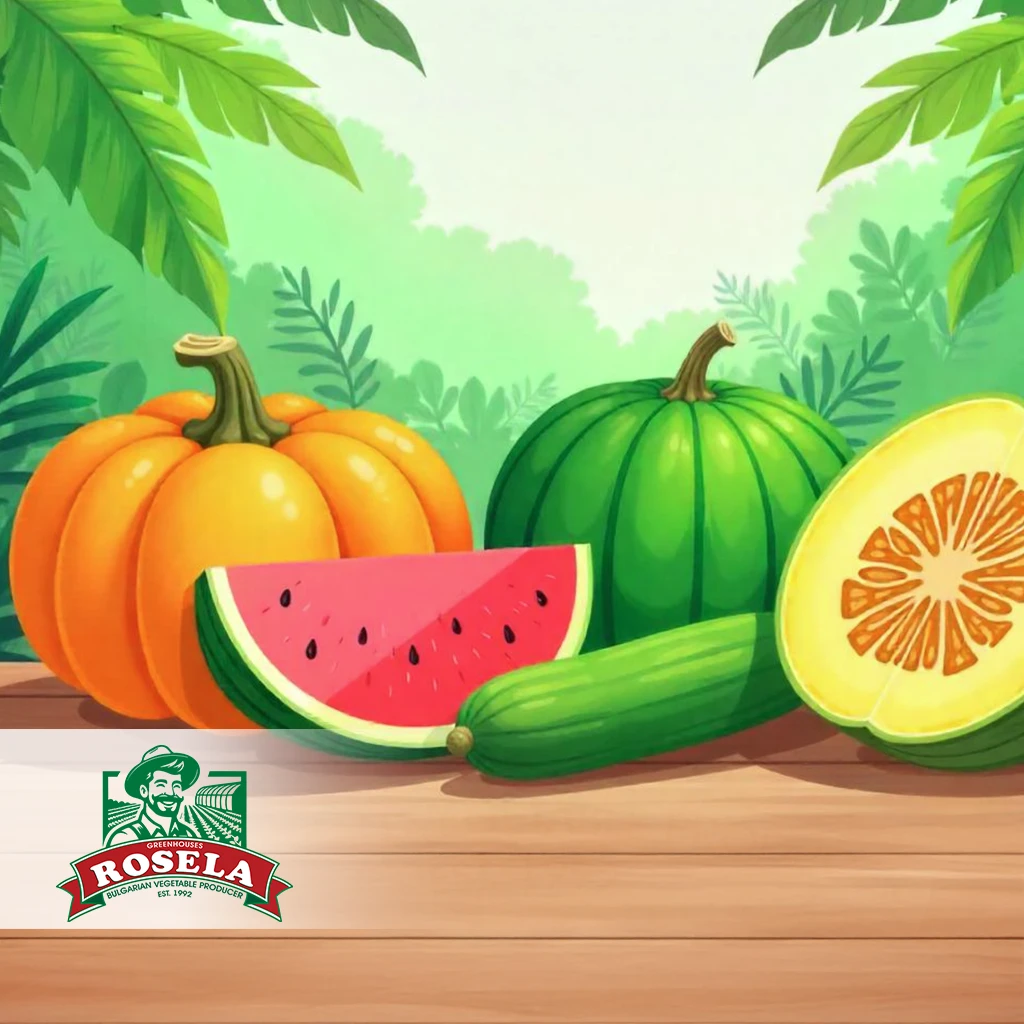
Like those guys, cucumbers start as yellow flowers, develop a tougher skin, and are seedy.
That family connection just makes their fruit status even stronger. You know, many other kinds of melons are also in this family.
Culinary Convention: Why We Treat Cucumbers Like Vegetables – Exploring the Culinary Use
Okay, so botany says ‘fruit’, but why do chefs and everyone cooking at home think of cucumbers as vegetables?
Well, it’s all about the use of in the kitchen and the way it is defined in the kitchen.
We usually think of fruits as sweet things for desserts and vegetables are the savory things we eat for dinner. Cucumbers, with their cool, smooth taste, are just right for the culinary world.
Savory Sensations: Taste and Tradition in the Culinary World
Cucumbers are great in salads, in stir-fries, and when they are turned into pickles. They are rather neutral in taste and are best combined with other savory flavors which is why we add them to dishes which are called ‘vegetable dishes’.
This whole culinary tradition, based on how things taste and how we use them, is also another way of looking at food.
From a culinary point of view, cucumbers are usually considered as vegetables, no doubt.
Kitchen Logic and Court Cases: When Cucumbers are Regarded as Vegetables
Funny enough, this ‘vegetable’ idea even went to court!
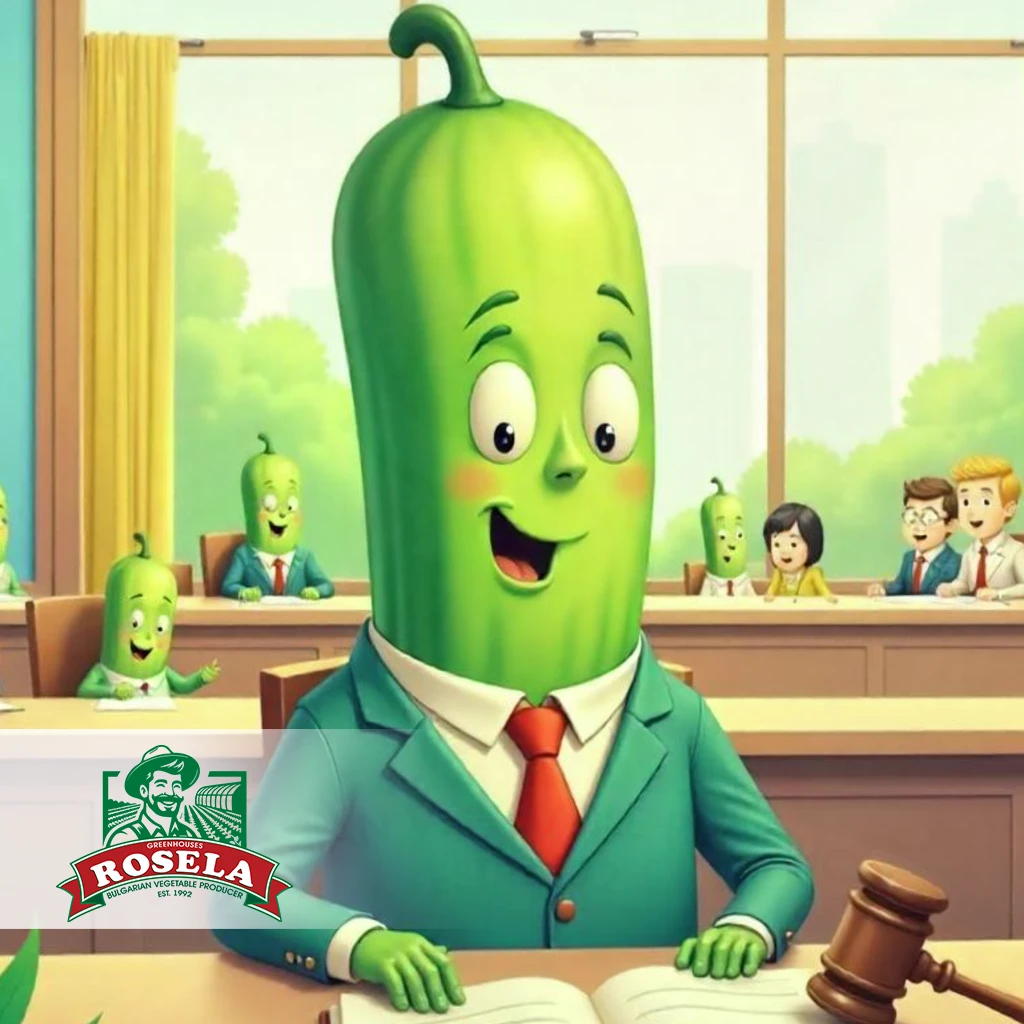
There was a court case. And guess what? The supreme court, in the culinary point of view, ruled that they are vegetables simply because people use them in meals, not as a dessert.
That really shows you how much that ‘vegetable’ label sticks to things like cucumbers, even though from a botanical point of view they are not vegetables.
It is just one of those things that proves that tradition and the use of food can be more important than the scientific classification, which makes cucumbers, in the kitchen, vegetables.
Bridging the Gap: Cucumber’s Double Life: Botanical and Culinary Aspects
So, cucumbers have this double life thing going on.
Botanically, they are totally fruits, born from flowers, seeds and all. But culinary-wise, they act like vegetables, appearing in all our savory dishes with their crunch and neutral taste.
Think of it like a secret agent – fruit on the inside, veggie in disguise!
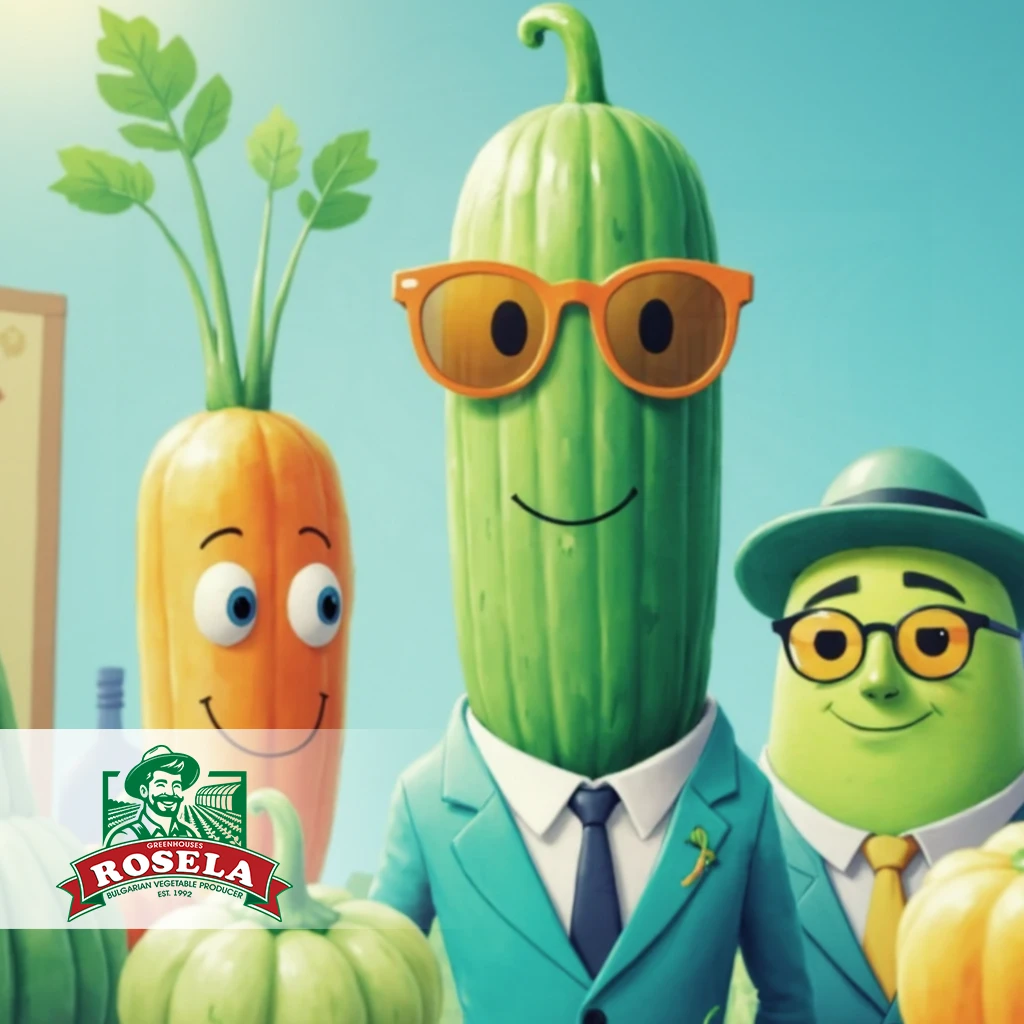
This botanical and culinary split personality is what makes the cucumber so interesting and such a great ingredient to have around.
Beyond Just Fruit or Vegetable: More to Explore About Cucumbers
Garden Goodness: How Rosela Grow Cucumbers
Speaking of the kitchen and all this food talk, where do these versatile ingredient cucumbers even come from?
Well, we at Rosela Greenhouses are really enjoying growing cucumbers.
We use really cool greenhouse technology to make sure that all our cucumbers are the crispiest and freshest.
From the best seeds to your plate, Rosela handles every step with care and knowledge.
If you want the best cucumbers, Rosela is the place to go!
Nutritional Powerhouse: The Health Benefits of Cucumbers and the Phytochemicals Found in Them
Forget just ‘fruit’ or ‘vegetable’ for a sec, cucumbers are nutritional champions! They are very low in calories yet high in fiber, vitamins and potassium.
Since they are mostly water, they are excellent for keeping the body hydrated, and they are also rich in antioxidants and phytochemicals that are good for the body.
Seriously, eating cucumbers is a win-win: it is both tasty and healthy! One serving of cucumber is packed with so many good stuffs.
Culinary Chameleon: Get Creative in the Kitchen – A Very Versatile Ingredient in the Culinary World
Cucumbers are such a mild flavor, they are like a blank slate in the kitchen.
Slice them and make refreshing salads and cold soups, pickle them or add them to stir-fries for some crunch.
The reason why cucumbers are so popular in spicy dishes is that they have that cool taste and a crunchy texture that goes well in salads and other dishes where you want to add some crunch.
Rosela’s Pro-Tip for Pickling Perfection
When pickling cucumbers, it is recommended that you add a few sprigs of fresh dill to the brine.
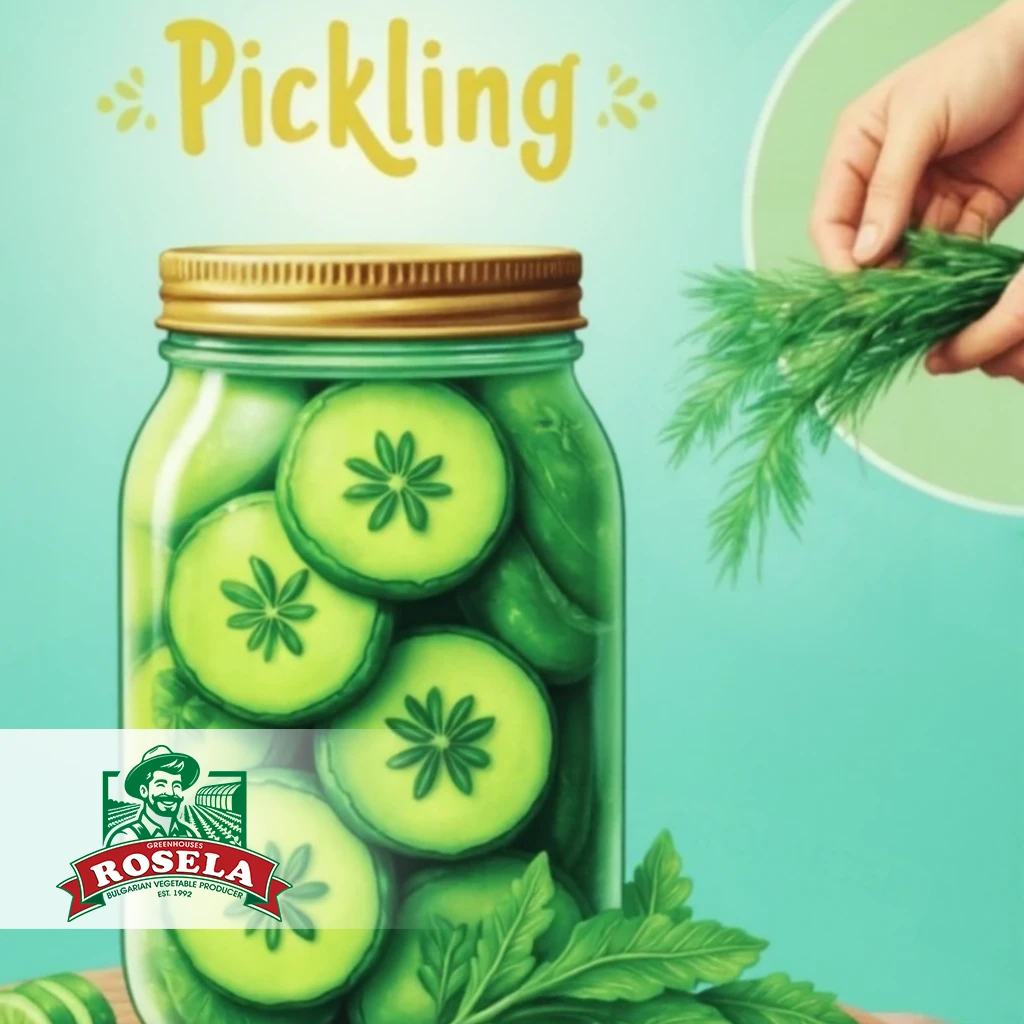
Dill makes the flavor better and your pickles will taste better with that traditional and nice taste. If you want a little bit of heat, you can add some chili peppers for a spicy taste.
Dive Deeper: Want to Learn More?
Quick Bites: Cucumber FAQs
Q: What causes cucumbers to develop an unpleasant bitter taste?
A: The stem end and skin of cucumbers contain compounds referred to as cucurbitacins that cause bitterness. Modern cucumber farming focuses on low bitterness but intolerance to heat or variable water supply throughout growing seasons can lead to increased compound levels. By removing the stem end and peeling the cucumber you can usually decrease the bitterness.
Q: Do cucumbers grow well at home and are they hard to cultivate?
A: Yes, you can absolutely grow cucumbers at home! Cucumbers are quite easy to cultivate and thrive best when planted in warm weather conditions. These plants require adequate sunlight, regular moisture and soil which drains well. No matter your gardening style, you can grow them both in outdoor soil and in container plants. Use trellis systems to support their climbing growth. Begin sowing seeds inside your home earlier than the season’s last frost date to gain a timing advantage.
Q: Should you remove cucumber skins before consumption?
A: Cucumber peeling is a choice that comes down to individual taste preferences! The skin of cucumbers serves as usable and nutritious protection which offers additional dietary fiber content. Some people get offended by tougher and occasionally bitter cucumber skin characteristics. Raw food consumers who dislike the bitter taste or experience more noticeable bitterness from certain cucumbers should consider peeling them. Make sure to clean the cucumbers thoroughly regardless of whether you decide to keep their skin on.
Q: Have you noticed “burpless” cucumbers available at stores? What qualifications do these cucumbers meet and does it make them superior?
A: The ‘Burpless’ cucumber variety has been developed through breeding to express less cucurbitacin content which causes bitterness and occasional digestive side effects known as burps. These cucumbers present a few noticeable differences including softer skins and fewer seeds together with a less intense taste. The choice between “burpless” cucumbers and regular ones depends on individual taste preferences. Select these cucumbers when you experience bitterness sensitivity or want extremely soft flavor because they work well in raw food preparation.

